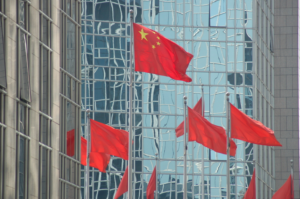Vi er gået fra blød lovgivning til anmodning fra multinationale selskaber om en regulering af deres forpligtelser i forbindelse med menneskerettigheder. Er der et skift på det globale marked?
Forholdet mellem forretning og menneskerettigheder har været genstand for international debat i årevis, men i de sidste måneder har vi været vidne til udvikling, der går fra den bløde lovtilgang til anmodningen fra virksomhederne om en regulering af deres forpligtelser i forbindelse med menneskerettigheder . Er der et skift på det globale marked?
Sådan skriver Elisabeth De Nadal fra opendemocracy.net i en kommentar og gennemgang af et muligt paradigmeskifte i tilgangen til regulering af overholdelse af principper menneskerettigheder:
Uddrag:
Protect, Respect, Remedy: these are three pillars of the voluntary uniform framework set by the UN Guiding Principles on Business and Human Rights (UNGPs) – endorsed by the UN Human Rights Council in 2011- which define and allocate the responsibilities in relation to human rights between the States and businesses.
The same existence of the UNGPs amounts to the acknowledgement of a gap in the International Human Rights Law in a globalised market. International Human Rights Law was created around the States as sole subjects and sole bearers of obligations under International Law, and as a tool to limit State’s power before the citizens. On the other side, International Law regulating economic development has grown disconnected from International Human Rights Law through tools to promote and protect investment (BITs) and multilateral commercial conventions.
In the context of the new international order characterised -amongst other factors- by the existence of a global market in which businesses become international actors, the UNGPs spell out that the protection of human rights needs to be re-oriented and placed at the centre to facilitate the acknowledgement of the role and liability of new potential abusers (businesses), as well as an extended State’s responsibility towards their protection.
In the context of this acknowledgement, the main contribution of the UNGPs is that they design, in the reality of the global market, a standardized general framework arranging and assigning responsibilities to States and businesses by means of specific conducts, having succeeded to achieve the acceptance and support of this new actor, the corporations. In addition, the UNGPs have also influenced the initiative of national legislators.
In the market, the UNGPs have been followed by a great number of general and sectorial standards of accountability, prevention and mitigation of the negative social and environmental impacts of business: the Global Reporting Initiative, the International Finance Corporation Standards, the ISO 26000 on Corporate Responsibility, the OCDE Guidelines for Multinational Corporations (2011 review) and its Due Diligence Guidance for Responsible Business Conduct (2018), the Global Compact, or the EU Guides for Oil & Gas and for ICT sectors.
As for the initiative of the national Parliaments, France led the trend in 2017 with its Duty of Vigilance Law establishing the legal responsibility of parent companies for monitoring and addressing the operations of subsidiaries under their control or in its supply chain. Germany, Switzerland, Finland, Denmark, Norway, Switzerland, Thailand, Kenya are amongst the countries having announced similar initiatives. Other countries have opted for laws setting duties to monitor the respect of basic labour standards (prohibition of child and forced labour) in their supply chain (e.g. USA, UK, The Netherlands or Australia).
n my perspective, this achievement is a direct result of the pragmatic approach of the UN working group, author of the UNGPs under the leadership of Prof. Ruggie (the UN Special Representative on human rights and business): the working group avoided to perpetuate the debate around the source of old or new obligations of businesses under International Law and, instead, chose to design a voluntary, systematized and uniform framework based on:
– the acknowledgment of businesses’ responsibility to respect human rights as a ‘standard of conduct’,
– which is independent of the States’ ability or will in relation to their own international and national obligations,
– which is additional to the businesses’ duty to satisfy the obligations resulting from the national laws,
– which is translated in the specific behaviours: preventing, mitigating and remediating which, in turn, translate into a defined set of specific actions developed under foundational and operational principles, all of which,
– cannot be replaced by other behaviours (e.g. promotion or education, or solidarity).
It is also my view, however, that the main failure shown since 2011 is due to the enforceability of the businesses’ responsibility and the State’s ability to react to abuses committed by national corporations outside its territory. Although the most common critique to the prevention and mitigation standards set by UNGPs refers to their voluntarily nature, the global market has somehow integrated them as an extra-economic element influencing the access to finance and capital, and as a factor influencing the value of business in transactions.
https://www.opendemocracy.net/en/democraciaabierta/lmultinacionales-abusos-derechos-humanos-hay-alg%C3%BAn-avance-en/











